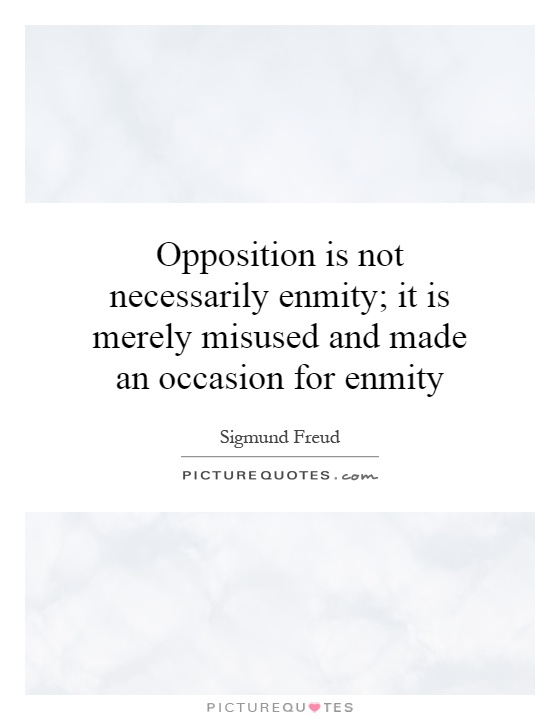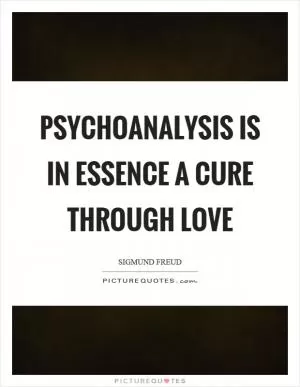Opposition is not necessarily enmity; it is merely misused and made an occasion for enmity

Opposition is not necessarily enmity; it is merely misused and made an occasion for enmity
Sigmund Freud, the father of psychoanalysis, believed that opposition is not necessarily enmity; it is merely misused and made an occasion for enmity. This concept can be understood through Freud's theories on the human psyche and the dynamics of relationships.Freud's theory of the unconscious mind suggests that individuals have repressed desires and emotions that influence their behavior. These repressed desires can manifest as opposition towards others, as individuals may project their own insecurities onto those around them. This opposition is not necessarily rooted in genuine enmity, but rather in the individual's own internal conflicts.
Freud also believed that relationships are complex and can be influenced by unconscious motives. In his theory of the Oedipus complex, Freud posited that individuals have unconscious desires for their parents and may feel opposition towards those who stand in the way of fulfilling these desires. This opposition is not necessarily driven by genuine enmity towards the other person, but rather by the individual's own internal conflicts and desires.
Furthermore, Freud's concept of defense mechanisms sheds light on how opposition can be misused and lead to enmity. When individuals feel threatened or insecure, they may resort to defense mechanisms such as projection, displacement, or denial. These defense mechanisms can distort reality and lead to misunderstandings and conflicts with others, turning opposition into enmity.












 Friendship Quotes
Friendship Quotes Love Quotes
Love Quotes Life Quotes
Life Quotes Funny Quotes
Funny Quotes Motivational Quotes
Motivational Quotes Inspirational Quotes
Inspirational Quotes